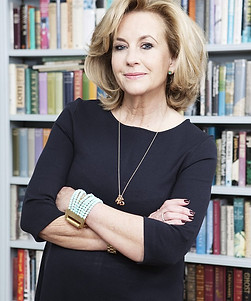How did you stay motivated when you wrote your first book?
I had no shortage of motivation, and no problem with procrastination or self-sabotage either because (and this is crucial!) writing was not at that point my job or what I was supposed to be doing! Writing was my hobby, and I was passionate about it, from very young childhood. I loved doing it, and couldn't imagine life without it! It was pretty much all I wanted to do, apart from hang out with my friends. Throughout school and university, throughout three years of working as a secretary/administrative assistant, I made no real effort to work hard at anything but my writing - my hobby. I wasn't thinking about publication, or likelihood of success or failure, only 'this is what I love to do'. Yes, I hoped to get something published one day, but that wasn't why I was writing and even if I'd never succeeded, I'd have carried on writing.
Then, some years later, writing became my job - what I'm supposed to do! And weirdly, it was only when I became very successful that my motivational problems began. There are many lessons in that!

Sophie Hannah
I started writing my first book on an MA in Novel-writing that I was taking. We had a year of teaching and workshops – and then a “finishing off” year – which was just what it says (no teaching etc – you were just allowed to take up to a year to finish the novel). Thing is, I realised halfway through the finishing off year that the novel I was writing was never going to work. So I did this slightly mad thing of scrapping what I had and starting again on a completely different novel, with six months to write it, and while working full-time.
I just knew in my guts that it was a better idea and would have a much better chance of ending up as a published book. The other one wasn’t a waste though – I had to work on that first unfinished one as part of learning how to write 'The Dinner', which was the one I did go on to complete. Tell you what – it certainly did focus the mind to have to write it in that way. Once I got going on that new idea, I felt it just had so much more zing to it than the other project, and the writing process was intense and strangely simple. I know it isn’t like that for all writers (not by ANY means), but at its best, the writing of a first novel can be quite full-on and a little wild, in a good way – it’s a journey of discovery. You’re finding out what you’re capable of and exploring new territory. It’s exciting!
I did also get lots of support from the students who I studied with on that MA – and I do think that having trusted readers, and being part of a writing community, can be a really helpful thing. In some ways, the thing I like best about my role as founder and managing director of Curtis Brown Creative is that we bring writers together and connect them with trusted readers.

Anna Davis
Back when I wrote my first book, you could get a deal based on about six chapters and a synopsis. I was lucky enough to get a deal with Headline on that basis, and so I suddenly found myself with 80,000 words still to write and six months to do it in.
I think I lived in a state of panic for that entire time (and beyond) but the deadline was extremely motivating.

Emily Barr
I joined the Romantic Novelists’ Association and found my tribe. They taught me that it was a journey that doesn’t happen overnight and if you persevere you will make it.

Liz Fenwick
It’s hard to remember because it was so long ago, and I wrote five or six (possibly seven?) novels before I was published. I don’t think it was hard staying motivated at all back then even though it was a more arduous process: I hand-wrote my first couple of books in A4 notepads, then typed them up using this strange contraption called a Sharp Fontwriter which displayed five lines of text at a time. It took five minutes to print a single page. It’s more of a challenge to stay motivated now I’m a full-time writer. There are so many distractions and it can be daunting and wearying thinking ‘I have to do this again?’ I still love it though, really.

Mark Edwards
Gill Hornby
I took a slightly unusual route in to writing fiction. I had two ideas that I thought would make novels , 'The Hive' - which came out in 2013 - and 'Miss Austen' - which comes out in 2020 - but I never thought I would actually write them. I had reached the age of fifty without even attempting a short story, or joining a writers' group, or any of the other things aspirant writers usually do. Instead, I was a newspaper columnist, and perfectly happy with that. And then I got the sack.
There is nothing like a bit of rejection and a sense of injustice to put lead in one's pencil. Indeed, I would say that rejection is almost always a positive, in the long run. Yes, you can wallow in misery for a bit, but then you have two choices: you can prove the bastards right, or you can prove them wrong. Once sacked, suddenly writing a novel appeared to be my only option. I was over fifty. No-one else was going to employ me. I had those ideas.... And although my greatest talents in life are procrastination and avoidance - show me a day, and I'll do anything rather than seize it - this was different. I said I was going to do it, so I had to do it. Because I had to prove the bastards wrong.

Gill Hornby
I was so in love with writing and the characters I was creating that it provided most of the motivation I needed. I also read a great deal and finding a book that inspires me was then – and is now – incredibly motivating. It’s also probably a good idea to read stories by published authors to find out what kept them going if they fell at the first hurdle. (I was very lucky in that I squeezed through with the first one).

Susan Lewis
Greg Mosse
Let me put it like this. Most of the conversations around books are about finished articles – how does Atwood compare to Asimov, is Sarah Waters more important than Angela Carter? Comparisons are odious. And talking about the finished article misses the point.
Writing is like being a builder. Your book is the building and you have to decide where to put the plumbing and the stairs.
If you like building – if you like the feeling that here, where once there was nothing, there is now something – why would you ever lack motivation?

Greg Mosse
